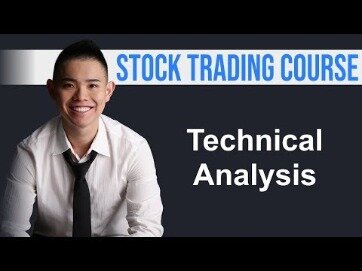Registered Financial Professionals
Contents:


Many investors open a brokerage account to start saving for retirement. However, the flexibility of this type of account means you can withdraw at any time and use the funds for shorter-term goals, too, such as a new house, wedding, or big remodeling project. Learn more about the benefits of a brokerage account and how it compares to other types of investment accounts.
Broker-dealers must also comply with many requirements that are designed to maintain high industry standards. Further, a broker-dealer name that is otherwise materially misleading would become subject to scrutiny under Exchange Act Section 10, and Rule 10b-5 thereunder, the general antifraud rules, and any other applicable provisions. This information does not constitute and is not intended to be a substitute for specific individualized tax, legal, or investment planning advice.
Freight Broker Interview Questions
A broker is an intermediary between those who want to make trades and invest and the exchange in which those trades are processed. You need a broker because stock exchanges require that those who execute trades on the exchange be licensed. Another reason is a broker ensures a smooth trading experience between an investor and an exchange and, as is the case with discount brokers, usually won’t charge a commission for normal trades.
Before it begins doing business, a broker-dealer must become a member of an SRO. SROs assist the SEC in regulating the activities of broker-dealers. If a broker-dealer restricts its transactions to the national securities exchanges of which it is a member and meets certain other conditions, it may be required only to be a member of those exchanges. FINRA’s webpage at provides detailed information on the FINRA membership process.
If it is a stockbroking firm, it will have its licensed brokers handle client transactions. Consider how much help and advice you want in your investing to make this decision. Do you want to invest in stocks, bonds, options, mutual funds, ETFs or a mix?
A stockbroker is a regulated representative of the financial market who enables the buying and selling of securities on behalf of financial institutions, investor clients, and firms. A stockbroker is also called a registered representative or a broker. The trading or purchase or sale of stocks on the national stock exchanges are usually executed through a stockbroker. Full-service brokers offer a variety of services, including market research, investment advice, and retirement planning, on top of a full range of investment products.
- You should understand and ask a broker about these conflicts because they can affect the services and recommendations they provide.
- Certainly, broker companies carry out a broader activity besides mediation.
- Insurance broker means a person who, by acting as the customer’s rep- resentative, arranges and/or services covered products on behalf of the cus- tomer.
- It is important to note that exceptions applicable to banks under the Exchange Act, as amended by the GLBA, are not applicable to other entities, including bank subsidiaries and affiliates, that are not themselves banks.
- Brokers exist in many industries, including insurance, real estate, finance, and trade.
- Designated Broker means the financial services firm or other agent designated by the Company to maintain ESPP Share Accounts on behalf of Participants who have purchased shares of Common Stock under the Plan.
Thus, it must promptly update its Form BD by filing amendments whenever the information on file becomes inaccurate or incomplete for any reason. The endless amounts of investment brokers out there can make it overwhelming to find one to work with. Your investment goals and strategy will determine what type of investment broker you should work with. You’ll want to align those goals and strategy with a broker’s fees. A trading spread refers to the difference between the amount you pay for a security and the amount paid to the issuer.
Examples of Brokers
The three types of traders are – individual traders, financial institution traders, scalpers and momentum traders. Top 5 real estate broker interview questions with detailed tips for both hiring managers and candidates. 5 In addition, Rule 11Ac1-3 requires broker-dealers to inform their customers, upon opening a new account and annually thereafter, of their policies regarding payment for order flow and for determining where to route a customer’s order.
If you’re just getting started in investing, you might want to consider a robo-advisor. Robo-advisors can offer lower minimum investment amounts which makes it much easier for those with fewer assets to get started. Robo-advisors are also entirely online, making it convenient to open and access an account when you can’t make it to a physical location. It’s also important to remember that most brokerage accounts have minimum opening balances, often of $500 or more. Be sure you understand all of the broker’s fees before opening an account with them.
Gladstone Commercial Announces Industrial Acquisition in the … – Gladstone Commercial
Gladstone Commercial Announces Industrial Acquisition in the ….
Posted: Mon, 17 Apr 2023 20:17:04 GMT [source]
This fundamental duty derives from the Act’s antifraud provisions mentioned above. Based on this important representation, the SEC, through interpretive statements and enforcement actions, and the courts, through case law, have set forth over time certain duties for broker-dealers. Firms that limit their securities business to buying and selling municipal securities for their own account must register as general-purpose broker-dealers. If, however, these entities are banks or meet the requirements of the intrastate exemption discussed in Part II.D.2. Municipal securities brokers must register as general-purpose broker-dealers unless they qualify for the intrastate exception.
As such, subsidiaries and affiliates of financial broker definition that engage in broker-dealer activities are required to register as broker-dealers under the Act. Also, banks that act as municipal securities dealers or as government securities brokers or dealers continue to be required to register under the Act. A stockbroker is someone who buys, sells, and trades stocks — or shares in companies — for a living. Also, online stockbrokers offer the advantages of access and speed, allowing executions of orders on point-and-click. The platforms also enable the placing of complex options and stock orders.
What are the types of brokers?
Conducting a thorough inquiry into a broker’s services, fee arrangements, and investment offerings will help you select a broker capable of serving your investment objectives. We wish to stress that we have published this guide as an introduction to the federal securities laws that apply to brokers and dealers. It only highlights and summarizes certain provisions, and does not relieve anyone from complying with all applicable regulatory requirements. You should not rely on this guide without referring to the actual statutes, rules, regulations, and interpretations.
Asset Classes Asset classes are groups of financial assets, such as shares or bonds, which have been… Portfolio Management Looking for a portfolio management definition? Meanwhile, prime brokerage services are those brokers who work with institutions such as hedge funds.
The traditional, full-service brokerage firms do more than simple facilitation. Stockbrokers are individuals or companies that buy or sell shares, stocks, and other securities, as instructed by their clients. Since investors cannot directly trade securities in a financial marketplace, they need to connect with a broker-dealer or brokerage firm to execute trade orders. In addition to executing trades, they are responsible for providing investment management and financial advisory services.
Customs Broker
You may also wish to consult the web pages of the individual exchanges for additional information. Stockbrokers handle transactions for both institutional and retail customers. The primary job of a stockbroker is to obtain buy and sell orders and execute them. Many market participants depend on stockbrokers’ knowledge and expertise regarding the dynamics of the market to invest in securities. A stockbroker can work either individually or with a brokerage firm. Sometimes, broker-dealers and brokerage firms are also called stockbrokers.
You may have to pass Series 7 and either the Series 66 or Series 63 exams. A competent commercial https://trading-market.org/ broker will know the details of several alternative lenders. Furthermore, they know what types of enterprises each lender focuses on. As of November 2022, the average salary for a stock broker in the U.S. was $75,521. He has covered financial topics as an editor for more than a decade.
Broker-dealers generally have an obligation to recommend only those specific investments or overall investment strategies that are suitable for their customers. The concept of suitability appears in specific SRO rules such as NASD Rule 2310 and has been interpreted as an obligation under the antifraud provisions of the federal securities laws. Under suitability requirements, a broker-dealer must have an “adequate and reasonable basis” for any recommendation that it makes. Reasonable basis suitability, or the reasonable basis test, relates to the particular security or strategy recommended. Therefore, the broker-dealer has an obligation to investigate and obtain adequate information about the security it is recommending. A broker-dealer that conducts all of its business in one state does not have to register with the SEC. (State registration is another matter. See Part III, below.) The exception provided for intrastate broker-dealer activity is very narrow.
Investment Management Update – April 2023 Skadden, Arps, Slate … – JD Supra
Investment Management Update – April 2023 Skadden, Arps, Slate ….
Posted: Fri, 14 Apr 2023 23:20:22 GMT [source]
Even if you are not a finance industry professional, you have likely heard of stockbrokers. At their core, stockbrokers are financial professionals who handle transactions on behalf of their clients. Before opening an account, you’ll want do some research into the individual broker as well.
In return, they receive a flat fee or percentage of the asset sale or purchase price as commission. That engages in the business of buying and selling securities – stocks, bonds, mutual funds, exchange-traded funds , and certain other investment products – on behalf of its customer , for its own account , or both. 3 Section 9 prohibits particular manipulative practices regarding securities registered on a national securities exchange. Section 10 is a broad “catch-all” provision that prohibits the use of “any manipulative or deceptive device or contrivance” in connection with the purchase or sale of any security. The Charles Schwab Corporation provides a full range of brokerage, banking and financial advisory services through its operating subsidiaries.
She has covered personal finance and investing for over 15 years, and was a senior writer and spokesperson at NerdWallet before becoming an assigning editor. Arielle has appeared on the “Today” show, NBC News and ABC’s “World News Tonight,” and has been quoted in national publications including The New York Times, MarketWatch and Bloomberg News. Designated Broker means the financial services firm or other agent designated by the Company to maintain ESPP Share Accounts on behalf of Participants who have purchased shares of Common Stock under the Plan.

Issuers generally are not “brokers” because they sell securities for their own accounts and not for the accounts of others. Moreover, issuers generally are not “dealers” because they do not buy and sell their securities for their own accounts as part of a regular business. Issuers whose activities go beyond selling their own securities, however, need to consider whether they would need to register as broker-dealers. This includes issuers that purchase their securities from investors, as well as issuers that effectively operate markets in their own securities or in securities whose features or terms can change or be altered. The so-called issuer’s exemption does not apply to the personnel of a company who routinely engage in the business of effecting securities transactions for the company or related companies . The employees and other related persons of an issuer who assist in selling its securities may be “brokers,” especially if they are paid for selling these securities and have few other duties.

For both individuals and corporate clients, financial brokers facilitate investment dealings for their clients. In popular culture, the term “stockbroker” may be used as shorthand to describe a variety of career paths, including stock traders, investment brokers, commodities brokers, or bond brokers. A broker can also act like a financial advisor giving advice to clients on their investment portfolio and investment options to reach a financial goal. A client’s financial situation and what they’re trying to achieve will impact their best investment option. For example, a long-term investor looking for assistance with retirement planning will likely want to make different trades than an active investor looking for a quick return. They can either work in the interest of its customers , its own accounts or both.
Advisory services are included in her package, so after a thorough review of her portfolio needs and goals, Joanna’s broker proposes an investment plan that she approves of, and execute it. 84% of retail investor accounts lose money when trading CFDs with this provider. The broker receives the order and if the brokerage has those shares available, they will most likely fill Amy’s order immediately. If they don’t they could buy those shares on the exchanges or from other brokerages. They may not place the order in the amount of 10,000, grabbing instead 500 to 1,000 shares at a time to deliver to Amy after the funds settle.
